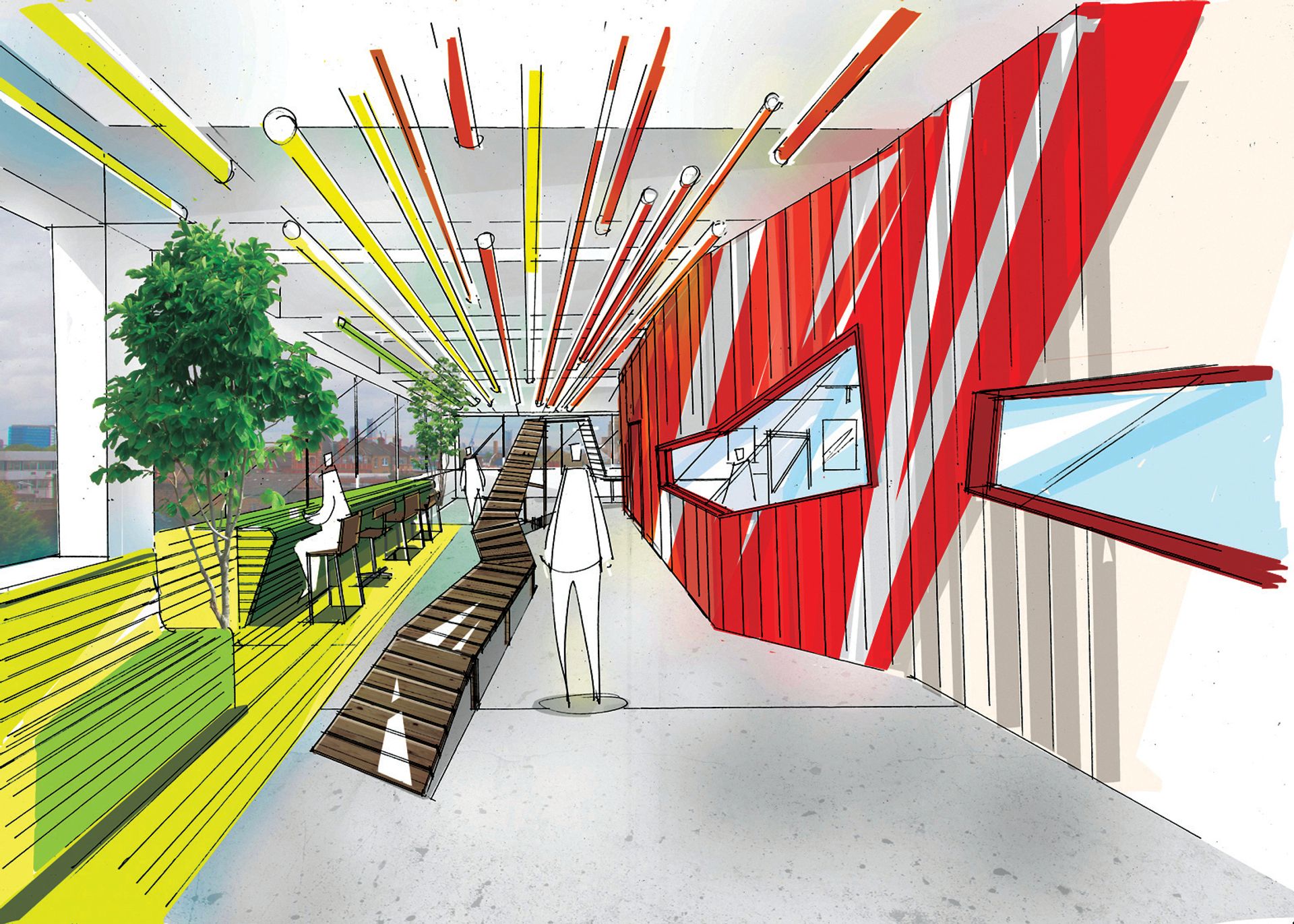A London council’s decision last month to reject plans to transform a multi-storey car park into 800 affordable artists’ studios has been criticised by prominent art-world figures and politicians. Despite backing from the outgoing director of Tate Modern, Chris Dercon, and the UK culture minister, Ed Vaizey, among others, Southwark Council instead sel ected a rival bid by a developer to turn the car park in Peckham, south London, into an events space with 50 studios and workspaces.
Rohan Silva, a former adviser to the British prime minister David Cameron, proposed converting the car park into 800 studios with Hannah Barry, the founder of the non-profit arts organisation Bold Tendencies, which has used the top floors of the building to host summertime exhibitions for the past nine years. The venture, which includes a rooftop bar called Frank’s, has attracted more than 900,000 people to the area. The architects Selgas Cano would have converted the car park.
“Short-sighted” approach The co-founder of the Frieze art fair, Matthew Slotover, and the executive director of the Institute of Contemporary Arts in London, Gregor Muir, are among those who expressed support for the Bold Home scheme after Southwark Council’s decision on 5 November, Silva says.
Others took to social media to express their dismay, with many citing an urgent need to protect artists’ studios—London stands to lose 30% of its creative workspaces in the next five years. The independent curator Ben Borthwick said the decision “augers badly”, while the artist organisation Create London tweeted: “Such a shame, this. Unfathomable even.”
Siân Berry, the Green Party candidate for Mayor of London, criticised Southwark Council’s approach for being “short-sighted”. “If we fail to leave space in our city for creativity to flourish there will be no designers or artists left in London, while the relentless drive to profit from property will intensify the housing crisis,” Berry wrote in her blog.
Before the decision was taken, several cultural leaders endorsed Silva and Barry’s proposal. Chris Dercon said it is artists who stop cities from becoming “ghettos for purely financial gain”, adding: “As London is eating itself, gradually becoming another Dubai or Mumbai, initiatives such as these are increasingly vital to keep London alive.”
Silva says he is now in talks with local authorities in Newcastle and Wakefield in the north of England and Leicester in the Midlands about hosting the project elsewh ere. “We have been offered pro-bono legal support and may appeal [Southwark’s decision],” Silva says. “But we’ve had kind offers from other people; the director of the Hepworth Wakefield said it has space for us.”
The wining proposal by Pop Community, which is a partnership between Carl Turner Architects and property developers The Collective, originally included 50 artists’ studios and workspaces. However, this number may increase after public consultation, according to Turner. He says the plan is to create 20,000 sq. ft of studios and workspaces for local artists and entrepreneurs, accounting for half of the total space available. “We weren’t so prescriptive as to say all the space should be used by artists, but if 800 artists come along then we will create 800 spaces for them,” he says. Unlike Pop Community’s retail park, which opened in nearby Brixton in May, only 4% of space will be given over to retail in Peckham.

Turner credits Bold Tendencies as central to the cultural regeneration of the area over the past few years. “We understand we are building on their success story and want to work with them,” he says, adding that it was a condition of the proposal that they accommodate the arts organisation.
But in a statement released after Southwark Council reached its decision, Barry and Silva say the future of Bold Tendencies is now “in jeopardy”.
Mark Williams, the cabinet member for regeneration and new homes at Southwark Council, says it is “committed to retaining Bold Tendencies and Frank’s bar in the car park”. He adds: “We understand the need for affordable artists’ studios and we have a programme to turn disused spaces into studios as we have done on the [nearby] Aylesbury Estate. However, we didn’t feel the Bold Home proposal was the best fit.”

